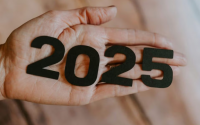14 December 2004The Guardian
As a young man, Recep Tayyip Erdogan was a gifted footballer; but not quite good enough to turn professional. So he concentrated on politics instead. Now Mr Erdogan is prime minister of Turkey.
EU leaders who must finally make a decision on Turkey's membership application at this week's Brussels summit may be wishing the skilful, determined Mr Erdogan had stuck to football.
In more than 40 years of trying, no previous Turkish leader has come this close to success. Several European governments, having accepted Ankara's bid in theory, are plainly uncomfortable at having their bluff called at last.
Fighting a rearguard action, opponents of accession talks are scrambling to impose last-minute conditions and get-out clauses. They suggest Turkey be offered "privileged partnership" rather than full membership. They say negotiations should be suspended if recent human rights improvements are reversed.
Some sceptics also want unprecedented permanent curbs on labour migration. Others propose an almost certainly fatal linkage with solving the convoluted Cyprus dispute. All would prolong membership talks for 10 or even 15 years.
Mr Erdogan is adamant that Turkey's 70 million people, who mostly favour joining the EU, will not accept second-class status. He points to numerous reforms enacted since he was elected last year, to fulfil the so-called Copenhagen membership criteria.
And he knows how to fight his corner. "We have done all that was demanded of us and the Europeans are still hesitating," Mr Erdogan said at the weekend. "That can clearly be called discrimination." Shin-pads may be needed in Brussels before the final whistle blows. In this not-so-beautiful game, all is not what it seems. Like most Turks, Mr Erdogan suspects that European concerns about farm subsidies and Kurdish radio stations conceal deeper prejudices.
These boil down to the fact that Turkey, however changed, remains overwhelmingly Muslim, historically hostile, and geographically Asian.
Worries about race, religion, identity and jobs are most evident in France, Germany and Austria, where public opposition is strongest.
In Germany, home to 2.5 million ethnic Turks, Edmund Stoiber's Bavarian Christian Socialists, allied to Angela Merkel's opposition Christian Democrats, have said they will blackball Turkey if they gain power in 2006. They crudely link Turkish membership to increased crime, terrorism and Islamist extremism.
In France, condescending claims by establishment figures such as Valéry Giscard d'Estaing that Turks could never be considered Europeans have lent a veneer of respectability to darker preoccupations.
As elsewhere in Europe, the French presidential pretender, Nicolas Sarkozy, appears set on using Turkey as a political football - part of wider campaign against multiculturalism. In two minds himself, President Jacques Chirac has promised a referendum.
Frits Bolkestein, the Dutch former EU commissioner, spoke revealingly when he warned earlier this year of the "Islamisation" of Europe. The Vatican's Cardinal Joseph Ratzinger came close to xenophobia in claiming that "Turkey has always represented another continent... in permanent contrast with Europe".
Such views from the mainstream have encouraged racist far-right parties in Austria and elsewhere. Last week they discussed forming a pan-European front to exploit the issue.
Yet according to many commentators, the reality is that Mr Erdogan, both devout Muslim and worldly-wise leader, has imperfectly achieved what many thought utterly impossible: the harnessing of Turkey's religious and secular (and military) traditions in joint pursuit of democratic modernisation.
Britain and others in the pro-Turkey camp, including the US (which has no vote but is lobbying hard), share this analysis. They also see Turkey, a Nato member, as a crucial bridge to Islam and the Middle East.
Having dangled prospective membership for so long, they say, there can be no going back now. For Europe, the game is up.
Thus almost despite itself, and possibly to its own surprise, the EU is expected to give Turkey the green light this week without imposing conditions that Ankara cannot accept.
Mr Erdogan may be no Zinedine Zidane. But he has political star quality. As EU defenders are learning, when he shoots, he usually scores.






